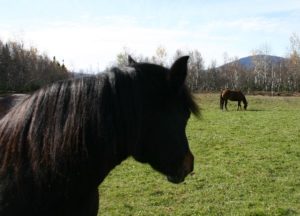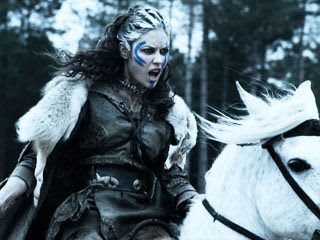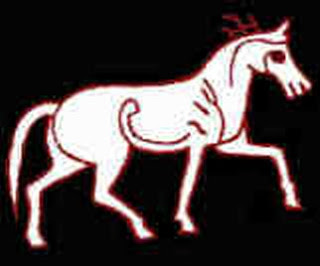 In a short time, possibly today, I will be posting a book review for Dr. Diana Dominguez’ Historical Residues in the Old Irish Legends of Queen Medb: An Expanded Interpretation of the Ulster Cycle which explores Medb’s story through the theories of gender performance and the reading of coding in literature. But I’m distracted, as I was when I first read this, by what had long been a pet peeve of mine that her concepts have allowed me to reconsider a bit. That is one line, just one line, in the Táin Bó Cuailnge, one that not only offended as a feminist, but I found just stupid as a horsewoman.
In a short time, possibly today, I will be posting a book review for Dr. Diana Dominguez’ Historical Residues in the Old Irish Legends of Queen Medb: An Expanded Interpretation of the Ulster Cycle which explores Medb’s story through the theories of gender performance and the reading of coding in literature. But I’m distracted, as I was when I first read this, by what had long been a pet peeve of mine that her concepts have allowed me to reconsider a bit. That is one line, just one line, in the Táin Bó Cuailnge, one that not only offended as a feminist, but I found just stupid as a horsewoman.
‘That is what usually happens,’ said Fergus, ‘to a herd of horses led by a mare. Their substance is taken and carried off and guarded as they follow a women who has misled them.’
Now, while it doesn’t seem (frankly the OI is beyond me here) that he is actually saying that a herd of horses is better led by a stallion, that’s an obvious implication. But here’s the thing that bugs me. The Irish are fairly well considered good horse people. Therefore they should have known one basic little fact. Stallions do not lead herds. Mares do.
This is such common knowledge in the horse world, except for a few hard-headed idiots who might consider themselves horsemen but will never get anyway, that I’m loathed to bother to reference it. Pretty much go to anything on various wild or feral herds, anything on pasture breeding, any of the Natural Horsemanship type trainers and you’ll find it. However, this crossed my FB page recently and so I don’t have to hunt anything down and this demonstrates that some horses are so fundamentally dependent on mares they can’t sleep without one to tell them it’s okay.
Mares lead the herd, they do determine where to find water and safe passage. The single stallion of a herd is there for two or three reasons. To breed. To keep other stallions from separating off some of the mares from the rest of the herd which would make the herd too small and vulnerable. And, on occasion, to throw himself at predators being the most expendable and easily replaced member of the herd (something one might note Medb’s story demonstrates as well). If the “substance” of a herd “is taken and carried off” it would actually be the stallion’s fault, because that’s his job, leadership isn’t. A mare would be leading, as is her job.
So considering coding, this reads as, well, perhaps something more. Remember Medb has gotten what she wanted, humiliation of Ulster by successfully carrying of the Brown and the continuation of her rule by equaling her husband’s bounty, once both the bulls are dead. It came with great destruction, of course. Fergus, btw, has never been a character I respected and Dominguez does demonstrate that the respect he seems to get from some, usually male, academics does not seem to match his obvious treacherous behavior.
Now, there is a chance that all the clerics who wrote this down didn’t know a damn thing about horses and like some misogynist men today really do think that stallion is the boss. But you have to figure someone took it as a joke through all this time. Perhaps it even was meant to be, at least by one person copying it even if he didn’t originate it. A joke by Fergus? A joke on Fergus? Perhaps more horse savvy listeners to the tales took it as a joke on the naive teller?
But whether it was ever read that way, to me, today, as a feminist and a horsewoman, I think it’s damn funny. I’ll always see it as that.
Copyright © 2011 Saigh Kym Lambert



 In a short time, possibly today,
In a short time, possibly today,